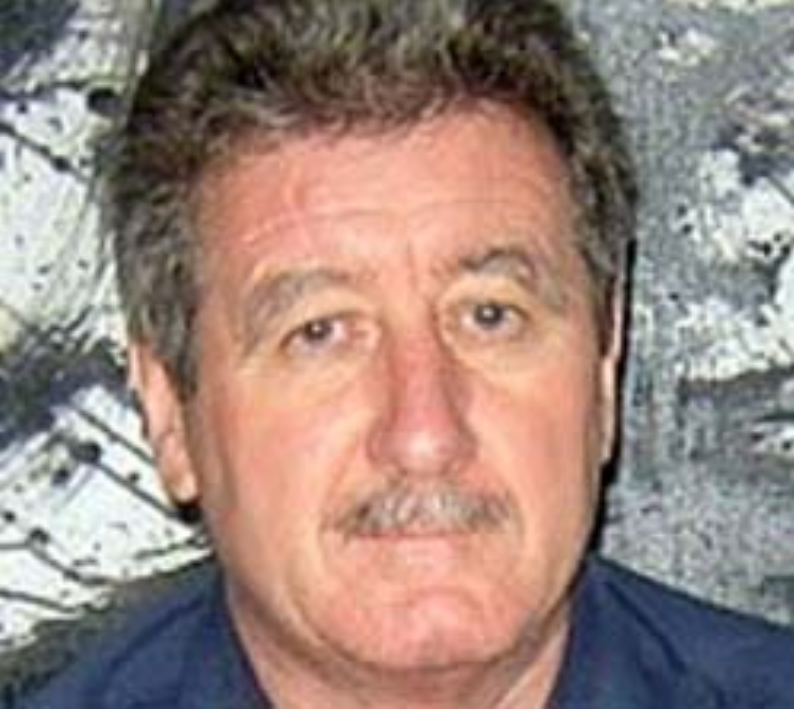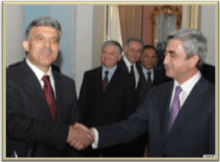by Ferruh Demirmen
It is becoming almost an annual ritual for American presidents to issue commemorative declarations every year on April 24 to remember the Armenian “victims” of a tragic historic episode that took place almost 100 years ago. How many other foreign historic episodes nearly a century old do the American presidents commemorate every year? The answer: “zero.”
And wherein lies the secret for such homage to Armenian people? Money, my friends, and lots of it in the form of campaign contributions.
And the hapless Turks, ever watchful if the dreaded word “genocide” will be spelled out on such occasions, take a deep breath if that does not happen. They sit mostly on the sidelines, waiting for the events to unfold. Never mind that, the “g” word or no “g” word, they may be blamed for atrocities in history they did not commit.
The Turk’s attitude is the poor man’s consolation for being spared a bigger affront.
The litany
Last year, referring to “human dignity” and “epic human tragedy,” President Bush issued a statement to “honor the memory of the victims of one of the greatest tragedies of the 20th century, the mass killings and forced exile of as many as 1.5 million Armenians at the end of the Ottoman Empire.”
Not a single word about the context, and the Moslem victims.
It is a melodramatic soap opera that takes place every year, and this year it was no different.
A few days ago President Obama, referring to “man’s inhumanity to man,” called the 1915 events “one of the great atrocities of the 20th century.” He remembered the “1.5 million Armenians who were subsequently massacred or marched to their death in the final days of the Ottoman Empire.”
So, Obama didn’t use the “g” word. Big deal! But he used the equivalent term in Armenian: “Medz Yeghern,” meaning Big Calamity. To the Turks, it is nearly as offensive as the “g” word. And Obama, a smart and perceptive man, should have known.
Never believe the ANCA-type hypocrites who feigned disappointment in Obama’s choice of words because he didn’t use the “g” word. The Dashnakians must have relished Obama’s use of the term “Medz Yeghern.”
It is the first time an American president pandered to the Freudian psyche of the Armenian lobby.
The term “genocide” is a legal term, anyway, and notwithstanding the untoward motives of ANCA-swayed politicians, the UN and the International Court of Justice are the only legal entities empowered to give credibility to that word.
A matter of balance
In all honesty, no one can blame Obama, or any other American president for that matter, to commemorate the tragic sufferings and deaths of Armenians during World War I. We must all condemn tragic events that befell humanity.
But humanity also calls for a sense of balance, or justice. Where is the context, the faithfulness to historical truth, and remembrance of Turkish and Kurdish sufferings and casualties in such condemnations?
Why is the number of Armenian casualties in these statements, which historical records show could not have exceeded half a million, boosted to 1.5 million?
Why is there no mention of the betrayal of the Ottomans by the Armenian populace, who, by forming armed gangs, attacked the Ottoman civilians and Ottoman armies from behind during wartime when the country was under Russian, French and British occupation?
More Moslems perished in the hands of terrorist Armenian gangs than the Armenians under Moslem backlash.
Do the American presidents, or politicians of all stripes for that matter, have the right to be selective in condemning “man’s inhumanity to man?”
Did the sufferings and deaths of Turks, Kurds, and even Jews in some cases, matter at all?
As Obama-the-candidate was being indoctrinated by Dashnakians as to the events during World War I and learn diligently the words “Medz Yeghern,” he should have asked his hosts to teach him how to say “betrayal”or “treason” in Armenian. And cite that word in his April 24 statement.
Those irresistible greenbacks
President Obama is a clever man with a huge popularity at home and abroad. Unlike President Bush, who had a habit of bumbling through his unscripted speeches, Obama chooses his words carefully. His language in his April 24 statement is a testimony to the irresistible effectiveness of ANCA’s lobbying efforts. His perception of history was clouded by Armenian propaganda.
The enthusiastic sponsorship that Obama received on ANCA’s website, through videos and webcasts, in apparent violation of ANCA’s tax-exempt status, is all too fresh in minds.
Obama didn’t stop with one-sided depiction of history. Adding insult to injury, he paid homage to Americans of Armenian descent for their contributions to the American society while ignoring Turkish Americans.
Fair is fair. Does Obama think Turks are zombies of no redeemable value?
Surely, the greenbacks, lots of them, must have done wonders for the Armenian propagandists in shaping Obama’s mind.
Dubious diplomacy
Will the Turks take notice of such indignity? We don’t know. But the higher-ups in the Turkish government in Ankara probably will not. They engaged in secret negotiations in Switzerland toward normalization of relations between Ankara and Yerevan, reporting the “progress” to the Obama administration but leaving the Turkish people – as well as the Azeri people – in the dark.
Which begs the question: Did those high-flying Turkish diplomats in Switzerland think they were representing the Obama administration instead of the Turkish people?
The Azeri have a very legitimate stake in the Turkish-Armenian talks because of the Nagorno-Karabakh issue.
In the meanwhile the Azeri, being briefed about the Switzerland talks by the Russians, who in turn were briefed by the Armenians, became incensed at Turks’ audacity at conducting diplomacy behind their back. The Azeri showed their displeasure by starting energy-related talks with the Russian energy giant Gazprom. Turkey’s east-west Nabucco energy transit project, already suffering from a cold bout, has become shakier still. The Azeri gas is supposed to be the initial feed gas for the project. Ankara now has its hands full trying to placate a jittery Baku.
The imponderables
Setting all this aside, President Obama perhaps deserves credit for tempering his April 24 statement with some moderation. Even Vice President Joe Biden, the inveterate genocide hawk, softened his stance. Obama could have been harsher in his statement. The moderation, of course, stems from anticipation of a growing dialog between Turkey and Armenia that started in Switzerland. Whether that will materialize, is something else. Obama didn’t want to throw cold water on the process.
But with his unmistakable pro-Armenian bias, most Turks will remain unimpressed with Obama’s stance.
The outcome of the Turkish-Armenian talks so far is a “road map” of which details are kept under wraps. Apparently there are no pre-conditions to advance talks to the next level. But the road map has many roadblocks for both sides – as well, for the Azeri.
In the meantime, the Turkish-American relations will become hostage to the outcome of diplomatic traffic between Ankara, Yerevan and Baku. With “Medz Yeghern” language in the background, it is not a reassuring thought. Turks are not comforted by Obama’s language.
Separately, there is no guarantee that a Democratically controlled U.S. House of Representatives under the leadership of Nancy Pelosi will not pass a pro-genocide resolution soon.






 With Turkish / Armenian negotiations reaching a peak, the focus of attention is moving from the wider debate to petty bickering over who said this and who said that, the inevitable outcome of a process in which a country’s leaders discuss fundamentals of agreements with their international counterparts then hide the truth from their domestic audience. The Armenian negotiating parties, President Sargsyan and MFA Nalbandian, have unashamedly deceived the Armenian public with respect to their year-long negotiations on Karabakh and Genocide. Today, they would have the Armenian public believe that Turkey has suddenly introduced pre-conditions for opening the border, an untrue statement and particularly alarming as it came immediately after discussions with the US President in Turkey, which surely must have led to a common understanding between Turkey, Armenia and the US. True, the Turkish side did change its position after Obama’s trip to Turkey and re-introduced Karabakh as a pre-condition. But in contrast to Armenia, Turkish reports on its position have been consistent, in Ankara, in Baku and in Yerevan.
With Turkish / Armenian negotiations reaching a peak, the focus of attention is moving from the wider debate to petty bickering over who said this and who said that, the inevitable outcome of a process in which a country’s leaders discuss fundamentals of agreements with their international counterparts then hide the truth from their domestic audience. The Armenian negotiating parties, President Sargsyan and MFA Nalbandian, have unashamedly deceived the Armenian public with respect to their year-long negotiations on Karabakh and Genocide. Today, they would have the Armenian public believe that Turkey has suddenly introduced pre-conditions for opening the border, an untrue statement and particularly alarming as it came immediately after discussions with the US President in Turkey, which surely must have led to a common understanding between Turkey, Armenia and the US. True, the Turkish side did change its position after Obama’s trip to Turkey and re-introduced Karabakh as a pre-condition. But in contrast to Armenia, Turkish reports on its position have been consistent, in Ankara, in Baku and in Yerevan.